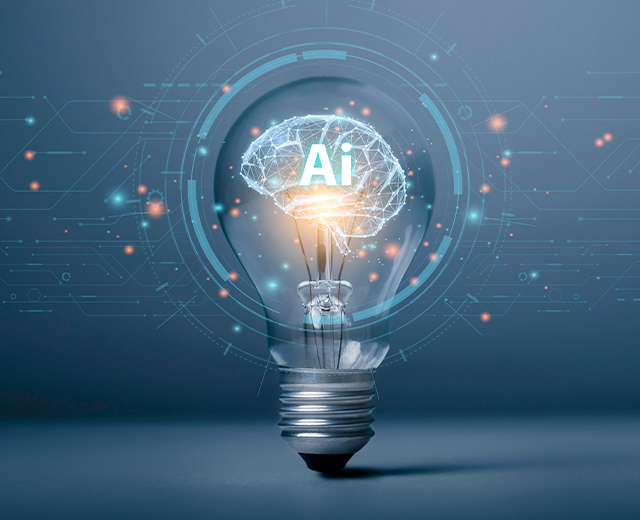As an educator deeply involved in the rapidly evolving fields of computer science, networking, and cybersecurity, I'm frequently asked by students and colleagues alike about the future role humans will play in cybersecurity as we stand on the threshold of artificial general intelligence (AGI). This question isn't just academic curiosity; it is crucially important for those entering our cybersecurity programs today.
Understanding AGI
AGI refers to machines or systems that exhibit intelligence comparable to human beings. Unlike current artificial intelligence technologies, which are specialized for specific tasks, such as recognizing images, recommending products, or predicting weather, AGI could learn and apply knowledge across diverse areas just like humans do. In simpler terms, AGI is akin to creating digital minds capable of reasoning, understanding context, and making independent decisions.
AGI's Broader Impact Across Industries
The potential impact of AGI isn't limited to cybersecurity alone; it spans all industries. In healthcare, AGI could dramatically enhance diagnosis accuracy and treatment plans by swiftly analyzing massive datasets. In transportation, AGI promises safer and fully autonomous vehicles capable of adapting seamlessly to changing road conditions. Financial services could employ AGI for real-time market analysis, predictive analytics, and fraud detection with unmatched precision. Moreover, education could be revolutionized through personalized learning experiences tailored precisely to each student's unique learning style.
However, these impressive benefits come with challenges: job displacement, ethical considerations, and the need for new regulatory frameworks to ensure AGI serves society positively.
Understanding AGI's Potential Impact on Cybersecurity
Cyber threats have grown, not just in volume, but in complexity. From ransomware attacks on healthcare systems to sophisticated nation-state-sponsored espionage, cybersecurity challenges have multiplied exponentially. Current AI tools help detect anomalies faster than humans can, but their capabilities remain narrow, specialized but limited in adaptability.
Enter AGI: an intelligence capable of adapting, learning, and executing tasks autonomously and creatively. Such intelligence could theoretically respond to cybersecurity threats instantly, learning and adapting defenses in real-time, far faster than human intervention. The fear, then, among many cybersecurity students and professionals is understandable: If AGI can do all this, why would the cybersecurity industry need human experts at all?
Historical Context and Evolution of Cybersecurity
Cybersecurity has evolved significantly from basic virus detection in the 1980s and 90s to today's complex global networks and sophisticated threats. Early antivirus software handled relatively straightforward threats, whereas contemporary cybersecurity must deal with nuanced threats involving human psychology and international politics. This evolution sets the stage for AGI, which promises to enhance threat detection and response capabilities exponentially.
Consider two recent major cybersecurity incidents:
- The Colonial Pipeline ransomware attack (2021): A ransomware attack shut down Colonial Pipeline's operations, severely disrupting fuel supplies across the U.S. East Coast. Had AGI been operational, it could have identified unusual network behaviors instantly, quarantined affected systems, and perhaps prevented the operational shutdown altogether.
- The SolarWinds breach (2020): A sophisticated supply chain attack compromised multiple U.S. government agencies and major corporations. AGI could have rapidly identified anomalies in software updates and unusual patterns of data access, significantly reducing the scale and severity of this breach.
These cases illustrate how AGI could radically enhance cybersecurity capabilities, especially in rapid detection and mitigation.
The Uniquely Human Role in Cybersecurity
Despite AGI’s impressive potential, humans possess unique abilities that technology alone cannot replicate. Cybersecurity isn't just about responding to threats, it's about anticipating them, understanding human motivations, ethical implications, and societal impacts. Cybersecurity is deeply human-centered, requiring intuition, ethics, and strategic thinking. Social engineering attacks exploit psychological vulnerabilities, necessitating human insight to train systems effectively.
Additionally, cybersecurity decisions involving privacy, data ethics, and regulatory compliance should not be left solely to artificial systems. AGI may suggest solutions, but human oversight and ethical judgment remain indispensable.
The Shift from Technical to Strategic Roles
With AGI handling repetitive and technical tasks, human cybersecurity professionals will shift toward strategic, supervisory roles. Cybersecurity experts of the future will likely act as orchestrators. Training, managing, and fine-tuning AI systems, intervening in nuanced or critical situations, and focusing on governance, compliance, ethical standards, and policy advocacy.
Preparing Future Cybersecurity Practitioners
For prospective and current students, this evolving landscape emphasizes holistic cybersecurity education. At UMGC, we're continually updating curricula to include advanced technical skills, ethical hacking, governance, policy-making, and human psychology. Students can leverage this robust cybersecurity education, along with a commitment to lifelong learning, to adapt and thrive. Continuous skill development, staying informed of emerging technologies, and actively engaging in professional communities will empower students to remain essential in strategic cybersecurity roles in the AGI era.
Addressing Ethical and Societal Implications
Ethical considerations around AGI include decision-making authority, data privacy concerns, and risks associated with over-reliance on autonomous systems. Effective cybersecurity governance requires transparency, accountability, and alignment with societal values; ensuring technology serves humanity, not vice versa.
Final Thoughts
The rise of AGI does not signal the end of human cybersecurity expertise but the beginning of a powerful partnership between human insight and advanced intelligence. Our role as educators, professionals, and future practitioners is to responsibly guide technological progress.
Cybersecurity’s future will undoubtedly be shaped by AGI, but human cybersecurity professionals will remain essential, evolving into strategic, ethically grounded, and deeply human-centric roles.
Reference on this webpage to any third-party entity or product does not constitute or imply endorsement by UMGC nor does it constitute or imply endorsement of UMGC by the third party.





/blog-artificial-intelligence-bachelors-degree-umgc-linklist-shutterstock-2577940083.jpg)